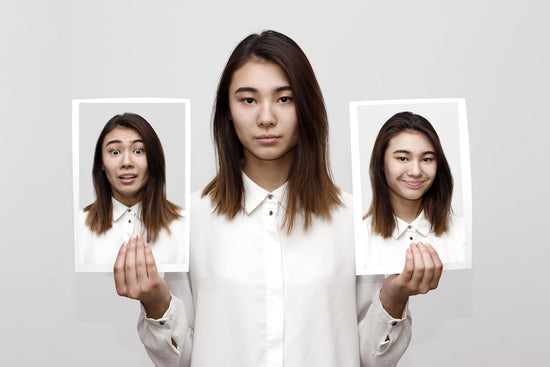
Black women and anxiety: hiding feelings to survive
Black women and anxiety
Dr. Elena Simpkins reflects on being a Black woman and anxiety and how it meant she had to hide her feelings to survive.
I am a Black woman of size and I have anxiety. That simple 11-word sentence took a lot of courage to write.
Some people reading this may not understand the bravery it takes for me to be so vulnerable. So, let me explain:
I spent much of my life being labeled a ‘worrier.’ Someone who, as my mother would say, ‘just liked to worry.’ And I promise you that was never the case. I didn’t like to worry; I just didn’t know how not to worry. When anything happened, I had no control over the spiraling thoughts that would consume me and oftentimes stop me in my tracks. So, I spent most of my life believing I was incapable.
And for a Black woman that is essentially 5’10” tall and weighs 260 pounds, the feelings I was experiencing internally did not align with what society told me was appropriate for a Black woman (especially a Black woman of my stature) should be experiencing.
Black women and anxiety diagnosis
I internalized that something was inherently wrong with me until a few years ago when…I was diagnosed formally with anxiety.
Finally, I had a reason for why social situations caused me so much angst. Why I was constantly overthinking and replaying my interactions with people. Why I couldn’t recall answers to questions when asked to speak in front of the class. Why I would obsessively re-read emails before sending them. Why did being late felt like a mortal sin? Why I was so critical of my appearance and focused on how others would perceive me. Why I was drowning in anxiety.
Read more: Signs you have anxiety
And as I’ve learned to manage my anxiety, I have learned what it means to be a Black woman and anxious. The physical manifestations of being a Black woman with anxiety are not outward. Most people aren’t aware that certain mannerisms are attributed to my anxiety, and because I am a Black woman, it’s not often a consideration. I believe that when most think about anxiety they think about outward-facing representations (i.e., elaborated fidgeting, rapid eye movements, heavy breathing, etc.). I also believe that when most people think about anxiety, they think about White women.
The words Black woman and anxiety are not often spoken together
White women are often thought of as fragile, needing to be handled with care. Black women are stereotyped as strong and able to withstand any and everything. The words Black woman and anxiety are not often spoken together. Being Black and being anxious doesn’t fit into that stereotypical image of Black womanhood.
So, because I’m a Black woman of size, I don’t think that idea of me being anxious even crosses most people’s minds. Because of that, I’m often thought of as rude and unapproachable.
Several people in my life told me they thought I was mean when they first met me. I think that statement was a compliment for them, but it wasn’t complimentary to me. It hurt. I couldn’t understand why so many people assumed I was not a kind person or why they would automatically think that I wasn’t a kind person.
I’m not a mean person (and even if I was, I don’t think that makes me any less deserving of friendship), but that particular assumption got to me because I am so compassionate, thoughtful, and caring. Sometimes to a fault.
So, for so many people to assume that I wasn’t because I was quiet during our first encounters truly stung. Typically, I was quiet because I wasn’t sure how to approach them.
I was trying to figure out what was the best thing to say. Would they like me? How would I be perceived? What should I say? How should I say it? Question after question would be spiraling through my mind to the point where I was completely frozen. And to know that people interpreted my angst and inner turmoil as me being unapproachable frustrates me.
Being able to look at these situations in hindsight allows me to better think about how my race and gender impacted several of these scenarios. I know that there is still a pervasive belief that Black women are extroverted, boisterous, and confident. I am not those things, and that worsened my anxiety. Black woman and anxiety wasn't seen as a possibility.
Knowing that I would never live up to that expectation of who people may assume me to be, made things worse for me.
If you happen to see me out and about, remember, that I am a Black woman, and I have anxiety.
Anxiety manifests in various ways, and for many of us (specifically Black women), we have had to learn to be ‘high functioning.' We don’t get to simply be anxious nor receive grace. So, several of the ways my anxiety manifests itself is because I learned that I needed to hide my feelings. It’s a privilege to be open about your anxiety, one that I haven’t often been afforded. But I have decided that I’m going to change that narrative.
As our worlds continue to expand and grow, it’s important that we hold space for others. This may take various forms, thinking critically about our automatic assumptions about others, allowing people to show us who they are in their own time, and remembering that there isn’t one way to be anxious.
So, if you happen to see me out and about, remember, I am a Black woman, and I have anxiety.










